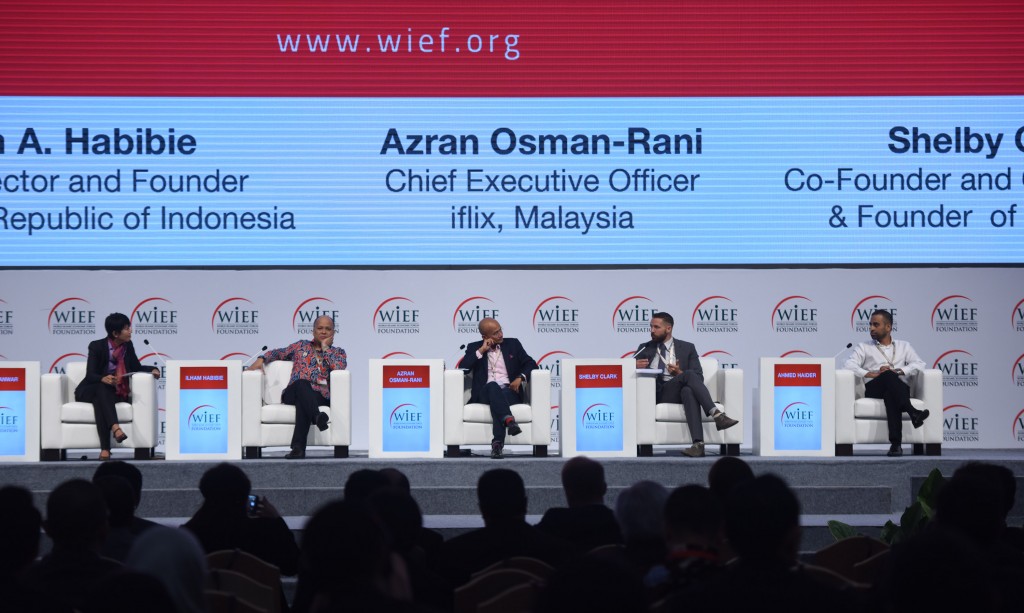CEOs & Startup Founders Look at ‘Disruptive Technologies’

Jakarta, Aug. 3. The contemporary popular term ‘disruptive technologies’ has emerged from the problems, frustrations and challenges people deal with in their daily lives, according to a number of founders of startup companies said today, an issue discussed during a CEO panel forum at the 12th WIEF in Jakarta.
Emerging of sharing economy practice is a result of disruptive technology that offer customer with more cheap, affordable, and efficient services without reducing the quality. The irony is that those disruptive innovations are often perceived as threats to existing conventional practices. There is also concern on the regulations of these new concept of sharing economy practice that is probably never been regulated.

Ilham A. Habibie, co-founder of oil and gas company Mitra Energia Ltd., observes that the people who use and implement so-called disruptive technologies are not the established ones. He thus suggests that established players should act as mentors to help young creators craft a sustainable and profitable business model.
Azran Osman-Rani, Chief Executive Officer Malaysia-based iFlix, said disruptive inventions were introduced as inventors observed the evolution of trends of consumers. This inspired him to introduce iFlix, whose idea is to ease people into a place where they can enjoy similar premium-quality TV programs, movies and other services, without having to be troubled by set-top boxes, installers or other such impediments.
Shelby Clark, Co-Founder & CEO of Peers, and Founder of Turo, headquartered in the United States of America, has found a way to embrace existing players. His innovation allows people to rent cars at their fingertips; in fact, it has even attracted General Motors to embrace his approach. He suggested existing players should perceive new inventions as opportunities instead of threats.
All presenters agree that disruptive technology needs proper or flexible regulations to ensure that the company can deliver their service to the customer properly and regulators can have their share on this economic sharing practices.













































